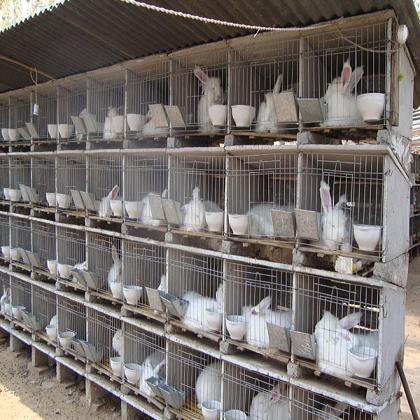Demand for rabbit meat grows in Zim
THERE is growing demand and consumption of rabbit meat in Zimbabwe, which is expected to drive commercialisation of the cunniculture industry, amid revelations leading hotels are now among major buyers of the meat.
Zimbabwe’s leading hotels have reportedly hooked on to the rabbit meat craze sweeping across the country by adding rabbit meat to their menus as diners become more discerning, preferring healthy dishes.
This also comes against a backdrop of a spike in rabbit meat consumption in Zimbabwe and globally, driven largely by the health benefits of the product.
The global rabbit meat market revenue amounted to $6,4 billion in 2017, picking up by 12 percent against the previous year.
The amount of rabbit or hare meat consumed worldwide totalled 1,5 million tonnes in 2017, picking up by 2,9 percent against the previous year. The total consumption volume increased an average annual rate of nearly 3 percent from 2007 to 2017.
Driven by increasing demand for rabbit meat worldwide, the market is expected to continue an upward consumption trend over the next decade.
Commercial rabbit production, which is fast gaining ground in Zimbabwe, has significant potential to generate foreign currency earnings for the country. Potential export markets for rabbit meat include China and the US.
The Zimbabwe Commercial Rabbit Breeders’ Association (ZICORBA) has already secured a niche for rabbit meat on the local market where demand is expected to soar to more than 25 tonnes a month valued at US$1 million. ZICORBA president, Mr Regis Nyamakanga, said leading hoteliers such as Cresta Hotels and Holiday Inn had recently introduced rabbit meat as part of their strategy of serving healthy dishes.
In addition, he said a number of popular restaurants and eateries in major urban centres in Zimbabwe have also introduced rabbit, making the dish one of the most preferred in the country currently.
“Three other top hotel groups will soon introduce rabbit meat as demand for healthy dishes continues on an upward trajectory,” he said.
Petronella Munyoro, chef at Cresta Group of Hotels, said customers had responded very well to the introduction of rabbit meat in Zimbabwe following the recent opening of the country’s first rabbit abattoir.
“We only buy meat from approved slaughterhouses. The coming on stream of a rabbit abattoir gave our group the confidence of introducing rabbit meat as one of our dishes.
“We used to be worried about the reliability of product supply but the opening of the Raymeg Rabbit Abattoir in Harare has brought some welcome relief,” she said.
Chef Munyoro added: “Our rabbit meat dishes have received a good response from our customers. We will continue to promote this healthy white meat and we expect more and more customers to savour our rabbit meat dishes.”
“Its estimation is that between 2,5 tonnes and 3,5 tonnes of rabbit meat is being consumed on the local market per month currently, bringing to about 30 tonnes a year. We expect this figure to increase by about 15 tonnes at the end of 2022.”
Zimbabwean specialist physician, Dr Nigel Dzvanga, said rabbit meat was an “excellent” source of protein, which keeps humans healthy by building and repairing their muscles, skin and blood.
“Rabbit meat is also an excellent source of iron.
“Iron helps make healthy blood that flows through our bodies, giving us energy to be active and to grow strong. Healthy blood keeps us from getting tired.
Rabbit meat is also an excellent source of the B vitamins B12 and niacin. These vitamins help our bodies use energy from food, and are important for growth, healthy skin, hair, nerves, and muscles, Dr Dvanga said.
“Rabbit meat is one of the best white meats available on the market today. It has a high
percentage of easily digestible protein and contains the least amount of fat among all the
other available meats”, he said.-The Herald









